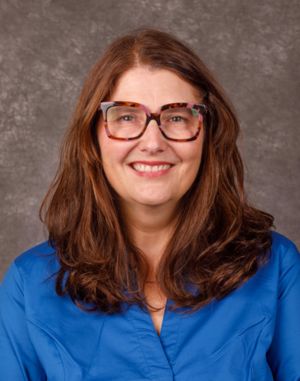Luke Beam on his farm in Cleveland County.

Crystal Cook-Marshall, Ph.D.
More is expected of farmers and ranchers than any other group of people, said Crystal Cook-Marshall, Ph.D., director of NC AgrAbility and agromedicine coordinator for Cooperative Extension at N.C. A&T.
“We expect them to work in all weather, use their own resources, work where they live and take all the infrastructural and financial risk to produce something that we all need,” Cook-Marshall said. “There’s a tremendous amount of burden and stress in every category, and so it’s not enough just to support the farmer in the field, you have to support the whole farmer.”
The U.S. Department of Agriculture is bolstering that support with a $292,439 grant to expand mental health services for farmers and ranchers — especially those who were caught in the fury of Hurricane Helene.
The grant is funded through the Rapid Response program of the USDA’s National Institute of Food and Agriculture (NIFA).
The money will be used by the North Carolina Agromedicine Institute’s Farm and Ranch Stress Assistance Network-NC to provide:
- An updated N.C. Farmer Stress Directory. The directory will be expanded to include resources related to natural disasters;
- An expanded NC Farm Helpline (844-325-3276), to offer round-the-clock help with resources, crisis intervention and emotional support services;
- Free, confidential counseling and behavioral health support from peers and providers who understand agriculture;
- Free psychological first-aid training and mental health literacy for farmers and other agricultural workers;
- A project impact report.
North Carolina Agricultural and Technical State University, East Carolina University and North Carolina State University are the primary partners in the Institute, which is based at ECU. The Institute can be reached by calling 252-744-1008 or emailing agromedicine@ecu.edu. People seeking mental health assistance also can call the NC Farm Help Line at 844-325-3276 or visit the website at ncfarmstress.org.
Roberta Bellamy, a licensed marriage and family therapist who works with farmers, said the stress farmers and ranchers experience goes deeper than their mental health.
“If they lose the farm, it is a spiritual thing to them,” said Bellamy, whose father was a farmer.
“My dad used to quote us a scripture in the Old Testament that said, ‘A good man leaves an inheritance to his children’s children,’ ” she said. Thus, if a farm is lost, the owner may wonder what that looks like in the eyes of God.
“There’s one research study that talked about loss of a farm was both like a divorce and like a death. It’s like a divorce from your ancestors, Bellamy said.
Luke Beam, who owns a cattle farm in Cleveland County, N.C., agrees.
“This land’s been in our family for five generations and you’ve got the weight of keeping it going,” said Beam, 50. “That’s a unique stress to agriculture that’s not in any other industry. That’s why a special kind of resources are needed for the agriculture community.”
He mentors another farmer as part of the Farmer to Farmer peer support program, facilitated by the Farm and Ranch Stress Assistance Network-NC. He also has received help from the program’s mental health services and credits his faith in Jesus with guiding him to this resource.
“Songs, scripture, acts of service and prayers of people carried me along until God used Agromedicine and its telehealth to diagnose my condition, and then, get me the help I needed,” he said.
Other supporters of the Farm and Ranch Stress Assistance Network-NC. are the North Carolina Farm Bureau, N.C. Department of Agriculture and Consumer Services, North Carolina Tobacco Trust Fund Commission, Corn Growers Association of North Carolina Inc., Farm Credit Associations of North Carolina and JoCo Grange.
Alyssa Spence, Ed.D., the institute’s interim director, said communities are still facing challenges from Helene.
“Nursery crops, livestock, orchards and other production common to western North Carolina can’t be quickly replanted or replaced,” she said. “Recovery is an ongoing effort that may take years in some cases. But there is a community willing to help and hope.”





